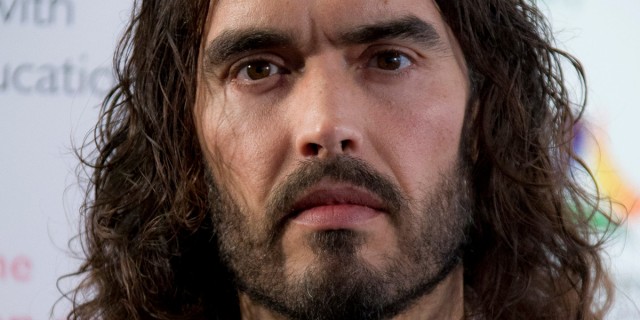 Russell Brand, British comedian and former husband of Katy Perry, has joined with some 90 celebrities, health experts, lawyers and politicians (including Sir Richard Branson and Sting) in signing a letter to the Prime Minister asking for reformed drug policy. Backed by the Support Don’t Punish organization, this noteworthy group is seeking decriminalization, stating that the current policies in place have led to the “unnecessary criminalization” of about 1.5 million people over the last 15 years.
Russell Brand, British comedian and former husband of Katy Perry, has joined with some 90 celebrities, health experts, lawyers and politicians (including Sir Richard Branson and Sting) in signing a letter to the Prime Minister asking for reformed drug policy. Backed by the Support Don’t Punish organization, this noteworthy group is seeking decriminalization, stating that the current policies in place have led to the “unnecessary criminalization” of about 1.5 million people over the last 15 years.
Citing evidence out of Australia, the Czech Republic and Portugal showing that when addicts are treated medically, as patients, rather than judicially, as criminals, the rate of drug-related health issues is “dramatically” reduced, Brand and the group are trying to treat addiction more as an illness. He states, “It is something I consider to be an illness, and therefore more of health matter than a criminal or judicial matter. It is more important that we regard people suffering from addiction with compassion and there is a pragmatic rather than a symbolic approach to treating it.”
I think Brand, regardless of what you think of his personal life and the nature of his material, is on to something here. When we view something as a crime, there is only one logical path of response: stop the crime and punish the perpetrator to prevent future crime. That may work with a car thief or a domestic abuser. But addiction is something all together different.
Treating addicts like sick people brings a whole bevy of differing approaches to solve the problem, and that’s the key difference. With crime, you are trying to stop a transgression (or punish a transgression). With addiction, you cannot simply address the symptom (the crime), you must address the root cause of the behavior in order to alter it.
Will a shift in policy magically solve the drug problems of the world? Of course not. There will always be exceptions to any rule or guideline that require a stricter response. But I do think it is safe to say that most of the “criminals” in jail for drugs do not fall into that category. Most are people busted with a small amount of narcotic for personal use.
I honestly believe that the ease of access to, prevalence of, and legal protections allowed to firearms in America pose an infintely larger risk to society than a drug addict. The heroin addict slowly dying in an alley is sad, they should be helped, not punished. The nut down the street from me who distills his own vodka and has a collection of handguns and taxodermied squirrels seems a much stronger candidate for a crime watch than the drug addict, and he scares me far more. I fully acknowledge that I am being prejudice in that example. I only say it to illustrate a point.
In fact, I would wager that most of the big time criminals are not heavy drug users. They are likely more akin to businessmen. They thrive because of the addict. It might even serve to imagine that if we helped addicts, we may even put a dent in real crime.
It will be worth watching how England and parliament handle this. I’ll keep you posted.









